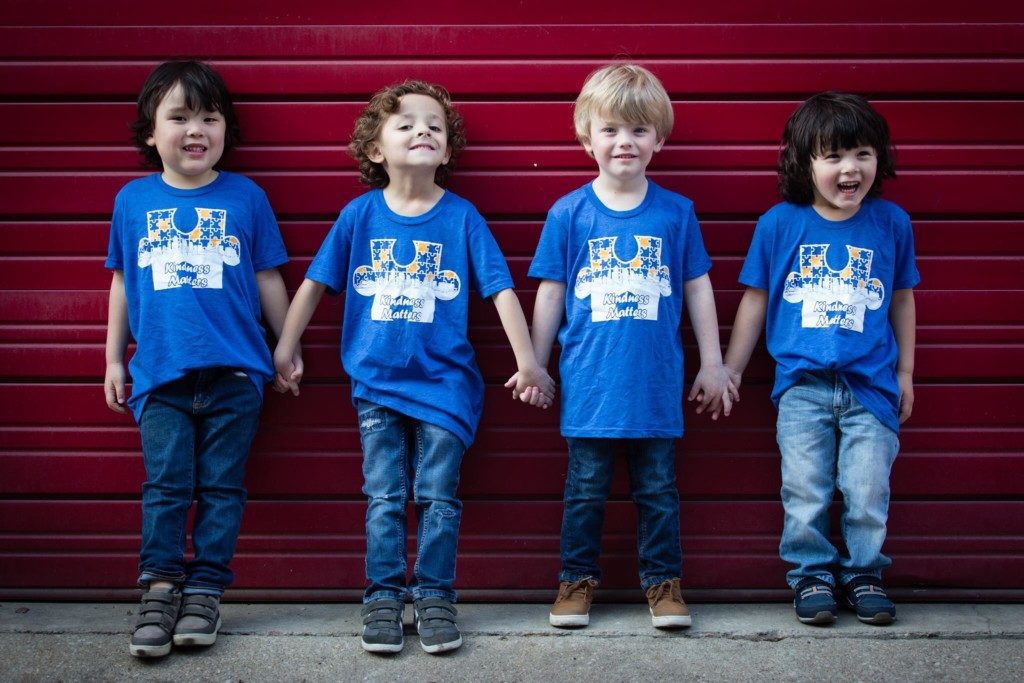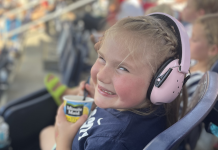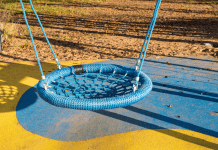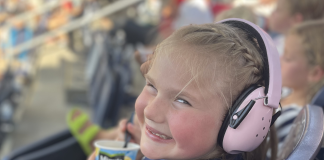Autism currently impacts 1 in 59 children, that includes 1 in 37 boys and 1 in 151 girls. With the prevalence rate of Autism being as high as it is, it is very likely that you have a personal connection to Autism, be it yourself, your sibling, a college roommate or a childhood friend. As a community advocate of 12 years and parent of two who are on the spectrum, I feel very safe saying our city is aware of Autism. But what happens when awareness is not enough? What happens when the families impacted by Autism need you to go beyond awareness, when they need you to accept, advocate and take action?

As we celebrate Autism Awareness and Acceptance month, here are some practical tips on how to not just be aware of Autism, but how to take one step further to support the thousands of families living in our community.
ACCEPT: When you are the parent or family member of a child who has been recently diagnosed the concept of acceptance can be a hard pill to swallow. Especially when you are in the throes of early intervention and all the new medical providers in your family’s life are impressing upon you the importance of therapies and behavioral supports. However, it is so important to remember that the child who sat on your lap that morning, before you received their diagnosis, is the same child standing before you now, and they still have so many great qualities and characteristics. Yes, some may be associated with ASD, but that does not mean you need to make those characteristics go away so your child is less autistic. The purpose of early intervention is to ensure your child has the greatest chance at achieving their highest level of success; verbally, emotionally and socially. It can be hard to strike a balance but through it all, the most important thing you can do is provide unconditional love and acceptance.

EDUCATE
When you are educated about Autism you can provide a better level of understanding and support. Now that does not mean you need to run out and get your Master’s degree in Autism. Educating yourself can be as easy as being aware that Autism has very few physical features that are apparent to the untrained eye and that you are far more likely to notice someone’s behavior or unique communication style than their physical features. Autism is also a “spectrum disorder” which means some individuals are more impacted than others. Educating yourself can mean understanding that a child may physically look like their peers but they have behaviors that are associated with ASD such as tantrumming, sensory differences and a higher need for routine and structure. These differences are not the child misbehaving and discipline does not fix Autism. Education can mean you being the teacher and helping your child understand that their peer who isn’t following the rules is not misbehaving, they simply need extra time to learn the rules and extra support to follow routines.
ADVOCATE
Everyone has the ability to be an advocate. Advocacy can be as simple as making sure the boy in your child’s class who you know is on the spectrum is included in class parties, or making a point to educate your moms group about ASD so that if someone in your group has a child who is diagnosed as on the spectrum the group is prepared to support them. Nearly 66% of children with Autism between the ages of 6-15 are bullied. That is close to double the incidence rate of bullying in students grades 6-12 who do not have Autism. Teaching your child about Autism and that different is okay is one of the most impactful things you can do as a parent to advocate and promote acceptance and inclusion.
INCLUDE
There has been a tremendous amount of research done on the benefits of inclusion and study after study has shown that from inclusion in the classroom to inclusion in the work place, Inclusion benefits us all. Autism is not just a pediatric condition. People do not grow out of Autism and It does not go away when the individual becomes an adult. There are half a million teens with Autism who will become adults in the next ten years. Those individuals often have the same dreams as their peers; to go to college, get a job and live in their community. Unfortunately, current statistics show that those dreams only become a reality for a mere 10% of adults with ASD. This is not for a lack of a desire or ability. This is due to the lack of inclusive employment opportunities and community living resources. The good news is, we can change that. By making inclusion the standard, we take the first step in breaking down barriers, removing stigma and creating equal opportunities for those with ASD. So, whether your family’s first step to inclusion is inviting a class mate with Autism to your child’s birthday party, or making sure the child in your neighborhood who is on the spectrum is included on your soccer team, setting the example to your child that including a person with developmental differences is the most important step you can take.
SUPPORT LOCAL
We are very fortunate that KC has some amazing local organizations that provide vital resources for individuals and families. If you are interested in making an impact and want to ensure your support directly affects a family right here in KC, SUPPORT LOCAL. These organizations include Camp Encourage, Fashion Honors Autism, Paws 4 Autism, and Summit Future Foundation.
Lastly, if you have a child who has recently been diagnosed, know that you are not alone. You have a tribe here for you, from online support groups to monthly meet ups and parent training sessions. Parents who have been swimming in the autism pond for decades and those that are new to this community are all here to support one another in this journey.
[hr]
 Cassidi Jobe is the mother of two boys with Autism, a community advocate and the Executive Director of Summit Future Foundation which is not for profit organization that empowers youth and young adults with developmental disabilities to achieve a meaningful life in their community. When she is not working to improve the lives of those with disabilities she enjoys spending time with family and friends, snowboarding and golfing.
Cassidi Jobe is the mother of two boys with Autism, a community advocate and the Executive Director of Summit Future Foundation which is not for profit organization that empowers youth and young adults with developmental disabilities to achieve a meaningful life in their community. When she is not working to improve the lives of those with disabilities she enjoys spending time with family and friends, snowboarding and golfing.















